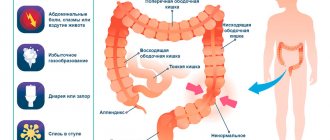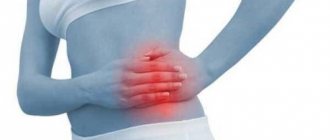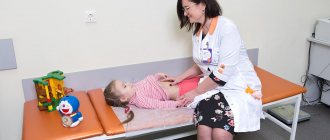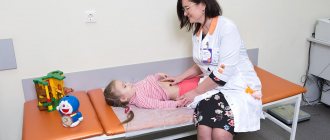Gastritis – in the last 5 years, every second person has come face to face with this diagnosis. And what’s more, it is given even to small children. For some reason, we are accustomed to considering gastritis - be it acute or chronic, occurring in women or men - relatively harmless. We compare it with the common cold, which attacks in the off-season and during cold periods.
It seems that gastritis is just an inflammation of the gastric mucosa. In reality, gastritis is the initial step towards an ulcer, and sometimes, in certain situations, can be a provocateur of oncology, because the number of cases of stomach cancer is increasing every day.
How to avoid getting gastritis, detect it in time and which doctor to contact if such an enemy does attack you - read about it in our article.
The first signs of gastritis
How to understand that you may have gastritis? If a person has gastritis, he feels discomfort:
- in the epigastric region - in the upper part of the abdominal wall (especially discomfort is observed after a person eats food, or vice versa on an empty stomach);
- in the form of stool disorder, nausea and/or vomiting;
- for example, “sour” belching or painful heartburn;
- feeling quickly full of food and a feeling of a full stomach, although you have eaten too little for this to happen.
Also, the first signs of this gastrointestinal disease may be a sharp decrease in appetite, a white tongue or bloating
Important! Identifying one of the listed symptoms is not at all a reason to run to a gastroenterologist and think that gastritis has attacked you. This could be a common gastrointestinal disorder or another ailment. But if you notice a combination of 2 or more of the conditions mentioned above, and these symptoms do not go away after a few days while following a diet, then you should immediately consult a doctor. He will either confirm the diagnosis and prescribe treatment, or refute it.
Types of gastritis
Gastritis is usually divided into acute and chronic. In acute cases, there is an immediate reaction of the body to the stimulus. To put it simply: it occurs when you eat or drink something harmful. For example, “aggressive” chips or Cola, medicine (in particular antibiotics), alcoholic drinks, etc. As a rule, some problems are already observed in the stomach and, when exposed to a harmful catalyst, it reacts to it.
Acute gastritis is characterized by quickly occurring severe pain (about half an hour or less after eating) and lasts about 1-2 hours.
Chronic gastritis is characterized by symptoms similar to the previous type. But pain, belching, little appetite and a constant feeling of fullness in the stomach become the patient’s companion. The tissues of the stomach walls change under the influence of prolonged inflammation, which subsequently (without proper treatment) can lead to their atrophy, and even precancerous conditions.
Chronic gastritis almost never occurs on its own. This is a “degenerated” acute form that you did not treat on time or did it incorrectly. As a result, gastritis affects the body of the stomach and the antrum.
Digestive processes in the human body
Our stomach is the most vulnerable organ of the digestive system. The most important and complex digestive processes take place in it:
- food is mixed in the stomach - this is a mechanical process;
- Then the breakdown of food occurs there - this is a chemical process;
- and nutrient absorption.
If at least one of these processes goes wrong, the entire digestive system suffers, and all further stages of its work are disrupted.
Most often, the inner wall of the stomach is damaged, its mucous membrane, where the production of the most important components of digestion occurs - gastric juice and protective mucus.
Human digestive system. Photo: Shutterstock
Is gastritis dangerous?
Doctors and scientific discoveries are the basis and the magic wand, thanks to which gastritis today can be 100% curable, if we talk about acute gastritis, and put it into stable remission - in case of chronic gastritis. But at the same time, gastritis is treated with supportive care and a diet that the patient constantly adheres to.
What if gastritis is not treated? The form becomes more severe and advanced, the area of damage to the stomach becomes larger. As a result, the organ becomes defenseless. Those. Damage to stomach tissue is the first danger of gastritis. Further:
- Peptic ulcer disease. Yes, it is treatable (especially if you trust specialists - for example, doctors at the ACMD-MEDOX clinic), but it is more difficult than in the first stage. And there is no talk of a 100% result that a person will be cured.
- Perforation of the stomach - a through effect occurs in its walls or duodenum, which threatens the leakage of contents. Where? Into the abdominal cavity. Perforation requires surgery.
Ulcers and other diseases that the patient ignores for a long time can lead to cancer. As we mentioned above, malignant tumors of the gastrointestinal tract occupy a leading position in the total volume of cancer.
The role of Helicobacter pylori in the development of gastritis
According to statistics, almost 90% of the adult population are carriers of Helicobacter pylori, which is responsible for the appearance of chronic gastritis. This connection was discovered by British scientists not so long ago - in 2005, the researchers received the Nobel Prize for the discovery. Interestingly, carriage of the bacterium does not always mean the appearance of gastritis, since it begins to develop in the presence of at least one of the following factors:
- there are disturbances in the blood supply to the gastric mucosa;
- the mucous membrane was previously damaged;
- there is increased acidity;
- a person’s diet is not regular; there are long periods of fasting.
Considering the modern pace of life, many people have the last risk factor, i.e. Helicobacter pylori cannot be left untreated.
Thanks to medical advances, antibiotic therapy only takes a few weeks.
If left untreated, gastritis caused by this bacterium can lead to:
- peptic ulcer;
- atrophic gastritis;
- adenocarcinoma of the stomach.
Helicobacter pylori: what is this bacterium and can it cause gastritis?
Helicobacter pylori is a bacterium that infects the duodenum and various areas of the stomach. Once in the stomach (paths of infection can be either the banal sharing of common cutlery or, for example, transmission through a kiss), it begins to secrete special substances. Those, in turn, increase the percentage of gastric juice, which negatively affects the gastric mucosa. Being in the body for some time, helicobacter pylori first causes inflammatory processes, then damages the stomach tissue and small ulcers appear on the walls.
Medical statistics say that about 85-95% of cases of gastritis attacks are precisely the result of active activity in the patient’s body by this same helicobacter. In order to get rid of the bacteria and not start the disease, you need to undergo complex treatment - antibiotics alone will not do.
University
→ Home → University → University in the media → Educational program on gastritis
Approximately two thirds of Belarusians suffer from chronic gastritis. However, patients’ ideas about the disease do not always correspond to reality, says Associate Professor of the Department of Polyclinic Therapy of BSMU, gastroenterologist and psychotherapist, Candidate of Medical Sciences. Science Anatoly Bliznyuk . He agreed to scientifically comment on common philistine opinions.
The main symptom is pain in the stomach
It's a delusion. Chronic gastritis is not a clinical, but a morphological diagnosis. The essence of the disease is a pathological change in the structure of the mucous membrane (confirmed by histological examination), which, as a rule, is not felt by a person. A feeling of heaviness, fullness in the epigastric region, heartburn, belching, pain and other unpleasant phenomena are associated with gastric dyspepsia accompanying gastritis, caused by functional disorders, or the addition of another pathology. Only certain forms of gastritis (for example, erosive) have a clinical picture.
Dietary errors lead to gastritis
I would say the main reason is chronic stress, incorrect psychological attitudes that determine lifestyle, and nutritional errors are one of the provoking factors. If a person is in a state of constant tension, anxiety, anger, fear, then normal digestion of food is disrupted, the functions of the stomach, its secretion and motility are inhibited. It is no coincidence that there is a metaphor “I cannot digest, I cannot stand this person (situation, etc.).” The stomach is an organ that is associated on a psychological level with the processes of acceptance/non-acceptance. Disorderly eating, abuse of spicy food, eating dry and on the go makes the stomach “work” under load. Raw food is easier to break down, but food with coagulated protein (i.e. boiled and especially fried) is much more difficult to digest. Another factor in the occurrence of gastritis is infectious. The microbe Helicobacter pylori is the cause of the most common form of gastritis - type B (bacterial).
Gastritis does not live alone
Indeed, pathology is rarely isolated, since inflammation in one part of the digestive tract leads to functional and then organic changes in others - in the duodenum, pancreas, gall bladder and throughout the intestine... The gastrointestinal tract is responsible for the humoral component of immunity (the formation of antibodies) , therefore, with any pathology, including the stomach, the risk of immune system disorder increases and allergic reactions appear. In my practice, there was a patient who suffered from atopic dermatitis of the face for a long time. I used a lot of ointments and talkers. As a result, the skin began to peel off in shreds, and the dermatitis remained the same. When the dermatologist said that a consultation with a gastroenterologist was needed, the man was surprised: “Why? My stomach never hurts!” And during the examination, multiple duodenal ulcers and calculous cholecystitis were discovered. They provoked a malfunction in the immune system, which manifested itself as a skin rash.
Where there is gastritis, there is an ulcer
Not certainly in that way. Type B and C gastritis can contribute to the development of peptic ulcers, but only in the presence of other negative factors - increased secretion of acid and pepsins (ulcers are an acid-associated disease), severe stress situations, etc. Type A (atrophic) gastritis generally prevents the formation of ulcers.
Illness forever
The epithelium of the mucous membrane and glands of the stomach are renewed quite quickly, which favors the normalization of the mucous membrane. But even with the right treatment regimen and diet, you cannot get rid of gastritis if you continue to lead an incorrect lifestyle. Often people do not want to change their psychological attitudes or give up bad habits (alcohol, smoking), so the illness remains with them forever... If you manage to change yourself, you can say goodbye to the diagnosis. The exception is atrophic gastritis, in which the death of cells of the mucous membrane occurs. All that can really be achieved in this case with the help of treatment is to prevent degeneration into a malignant tumor.
Eat soup and you won't be afraid of gastritis
There is some truth in this. Liquid food does not require active grinding and does not contain excess protein, the most complex nutrient in structure, the digestion of which takes more than 50% of the energy received with it. An excess of coagulated meat foods, especially fried ones, contributes to pathological changes in the mucous membrane.
- Gastritis is inherited
The predisposition exists, but is realized only under appropriate external conditions. If a person works and rests in moderation, is satisfied with himself and life, eats a balanced diet, the genes will “sleep”. Most often, what is prescribed by heredity turns out to be only family habits and eating patterns. For example, if a father, mother and children eat mostly “from the frying pan,” then everyone will probably have cholecystitis.
- You can get gastritis
Yes, if it is type B gastritis (infection-induced). The most likely way of transmitting the pathogen - Helicobacter pylori - is kissing on the lips, as well as using someone else's dishes and personal hygiene items, for example, a toothbrush. Other forms of the disease are not transmitted by contact.
- They say that high acidity in the stomach can be reduced with carrot juice, and increased with sour vegetables and fruits (apples, sauerkraut, etc.)
This is wrong. Fruits, in particular apples, often have an alkaline environment. But carrots do not significantly affect the acidity of gastric juice.
- Chewing food thoroughly reduces the risk of stomach problems
Right. Poorly chopped food creates additional stress, because the organ needs to homogenize (grind) the incoming “material” into a homogeneous liquid mass. The less your teeth and tongue work, the more difficult it will be for your stomach.
- To make a diagnosis, it is enough to see the inflamed mucous membrane
Esophagogastroscopy is truly the main method for detecting gastritis. But visualizing the changed mucosa using optics is not enough. Be sure to perform a biopsy and examine the tissue area under a microscope. Only based on the results of histology the diagnosis is considered reliable.
- Smokers get gastritis more often
Yes. Cigarette smoke is a strong pathogenic factor for the mucous membrane of the stomach and duodenum. Smokers are also more likely to suffer from ulcers.
- Monitoring for gastritis is enough once every five years.
No. In case of atrophic epithelium with intestinal metaplasia - at least 2 times a year with mandatory endoscopic monitoring. For other forms - once every 1–2 years.
- An attack of heartburn can be easily relieved with a soda solution
You can get rid of the burning sensation in this way, but you should do it only occasionally, when there are no other antacids that neutralize hydrochloric acid in the stomach. If you resort to this remedy often, the result will be milk-alkali syndrome with stool upset. It is better to use special medications: Almagel, Phosphalugel, Maalox, Hephal, etc.
- Gastritis is a disease as old as time, and little has changed in its treatment
No, every 15–20 years the approaches are different. A feature of current therapy is differentiation depending on the form of the disease. For example, in the case of bacterial gastritis, 3–4-component anti-infective eradication therapy is required. For reflux-associated and medicinal forms while taking non-steroidal anti-inflammatory drugs, prokinetics (drugs that normalize gastric and intestinal motility) are used: motilium, cerucal, cisaprite. As for type A (autoimmune) gastritis, unfortunately, to this day there is no effective treatment. Proper nutrition and a healthy lifestyle slow down progression. In advanced cases with secretory insufficiency, replacement therapy with diluted hydrochloric acid and acidin-pepsin is used.
Three important conditions for prevention
Eating should take place in comfortable conditions.
Not on the street, not in transport, not “in between times.” Forget about computers or TV while eating. Approach lunch or dinner as a ritual, regardless of whether it is at home or at work. Washing your hands, not rushing, chewing well - everything should confirm that you are enjoying the process. Food is the first biological pleasure of man. Those who turn it into snacks in a hurry, eat with dirty hands, in an uncomfortable position and place - are haunted by gastritis and other gastrointestinal troubles. Eat in a good mood. Learn to distract yourself from unpleasant thoughts, problems that you recently solved, do not get stuck on them, or at least try to think in a positive, humorous manner. And if this fails and you are still tense, angry, upset, then first you need to restore your inner balance, and only then eat. By “eating” stress, you are guaranteed to get diseases of the digestive tract, regardless of what gets into your stomach. Avoid overeating. This is especially true for fried and burnt food, oil that has been used several times (it has a very negative effect on the gallbladder, which, in turn, affects the stomach). When a feeling of heaviness, fullness, or increased gas formation occurs, many swallow a life-saving remedy containing enzymes, such as mezim. But it’s better to have a fasting day and a short fast. While your stomach is resting, do not forget to relax emotionally: avoid scandals, conflicts, tension in relationships. Move more, be in nature. The digestive tract will recover on its own under such conditions. Elena Kleshchenok Medical Bulletin , June 26, 2013
Share
What bad habits can cause gastritis?
The most common cause of gastritis is the habit of eating poorly and chewing food poorly. Poor nutrition should be understood as: drinking coffee and sweets on an empty stomach, non-compliance with the diet, abuse of smoked, fatty and spicy foods. Surely you have noticed that if you chew your food poorly and quickly “push it down” (seemingly full), then this is self-deception. Then, of course, there will be a feeling of discomfort in the stomach, pain, etc.
Diagnosis of gastritis: how to identify the disease?
A doctor can diagnose gastritis only after a study called fibrogastroscopy. Before the procedure, the patient is required to observe a fasting regime for 10-12 hours, so that, based on the results of the materials taken, the doctor determines the presence or absence of helicobacter bacteria, the extent of the inflammatory process, the presence or absence of erosions and ulcers. To clarify the diagnosis, the gastroenterologist has the right to prescribe other tests: x-ray of the stomach, ultrasound of the abdominal organs, laboratory tests. In the chronic form of the disease, a biopsy is performed during fibrogastroscopy.
Be healthy. At the first symptoms of gastritis, contact the specialists of the ACMD-MEDOX clinic!











